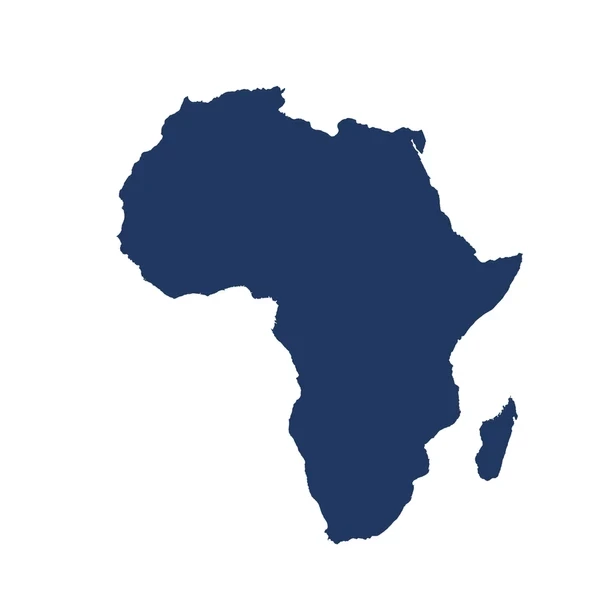
With a population of over 1,5 billion people and an average age of 19 years, the African continent is armed with a valuable human resource base.
Not only is this important for Africa but the world at large, remember the world has literally become a global village.
The region is home to the youngest population in the world, with 70% of the populace in Sub-Saharan Africa being below the age of 30.
By year 2050 the continent is projected to account for about 25% of the global working age population.
Having said that, according to the African Development Bank, one third of the youth aged between 15 to 35 are unemployed and desperate, the other third is in unstable employment arrangements which make them vulnerable and only one in six is in stable employment.
The population of the youth entering the workforce each year is four times the job opportunities created annually.
The proportion of youths not in employment, education or training in Sub-Saharan Africa is 21,9%, higher than the global average of 20,4% with a margin of 1,5%.
At this point I think you appreciate the magnitude of the issue we are trying to tackle here. The problem of unemployment in Africa is humongous with devastating effects and must be confronted henceforthwith.
- Open letter to President Mnangagwa
- Feature: ‘It’s worse right now than under Mugabe’: Sikhala pays the price of opposition in solitary cell
- Masvingo turns down fire tender deal
- Human-wildlife conflict drive African wild dogs to extinction
Keep Reading
It is not shocking that terrorist groups such as Al Shabaab and Boko-Haram are mainly composed of youth with ages ranging from 12-30 and are not running short of recruits yet.
About 3000 people drown to death in the Mediterranean annually trying to (illegally) migrate to Europe in search of opportunities.
Another fact we often omit is that for the migrants to get to the Mediterranean Sea they first have to cross the Sahara Desert. This is how grave or dire the situation is.
As I mentioned earlier, the world is now a global village thanks to the internet and digitisation of most processes be it work or business.
Sympathising with the unemployed youths on the African continent I will go on to say that the status quo requires a mindset shift in the way we perceive work (employment).
It is alright to hope for an interview and be ushered into a big corporation as a graduate trainee then spend the next 40 years there, the problem is that it may not be feasible under the existing conditions.
One way of circumventing the unemployment plague is to be active in the platform ecosystems that offer work opportunities.
As advocacy for better conditions for the platform workers is gaining momentum and reaching wider audience this may present one of the avenues to tackle the problem of unemployment.
For instance, many young people across the continent are tapping into the ride-hailing market using platforms such as Uber, InDrive, Rider, Little, etc.
The platforms match the skills of the service provider with the prospective client, in this case a driver and a customer requiring transportation services.
Without the platform (ride-hailing app), for example Uber it would be virtually impossible to establish such high levels of matches between the drivers and the clients.
This creates work for the drivers as they achieve more matches and encounter more clients in a day.
The same model applies to those who are into parcels and food delivery.
There are platforms that establish a match between restaurateurs and remote clients thus creating work opportunities for individuals who pick up the food and deliver it to the consumer.
By registering online using a mobile device they can become part of this network and manage to earn some income.
For those with more sophisticated skills, they can join platforms where projects are coordinated online (remotely), I know a lot of friends who handle architectural, software development, construction and aeronautical engineering projects remotely.
In particular, for those in software development and technology, in this era it is no longer a prerequisite to be in Silicon Valley to succeed in this sector.
The advantage that old Silicon Valley startups enjoyed was the ecosystem of like-minded technologists who shared diverse technologies among the network hence boosting the success rate.
What it essentially means is that if you were trying to solve a problem in your project you had high chance of coming across someone who had already solved that particular problem in a different system, but could not move forward because there was some area they had not figured out and your own input would be useful in their own situation, if not them then it would be invaluable for someone in their network, hence the ripple effect.
The scenario I have simplified here is what happens on creative platform ecosystems, thus it is no longer necessary to be located in Silicon to actualize your ideas.
The African techpreneurs stand to reap handsome rewards by tapping into this space not necessarily as merchants and clients but by creating their own platforms that deliver value across the region.
A clear demonstration of this is the Hello Tractor app (platform) developed by Jehiel Oliver in Nigeria which matches smallholder farmers with tractor leasing businesses.
Jehiel identified the problem of inadequate mechanization on African farms and bridged the gap between the farmers and the tractor owners by developing the app.
Hello Tractor struck a deal with John Deere to manage the latter’s fleet of 10 000 tractors in Nigeria.
This arrangement is expected to bring a total of nine million hectares under cultivation, consequently generating two million jobs.
There are plenty of such opportunities across the region, for example one may tap into the fertiliser value chain on the continent by profiling manufacturers with the most the affordable prices such as OCP Africa and create models of linking them with zones where particular fertilisers (especially crop specific and special fertilisers) are highly used.
This generates business as well as employment as the consignments are shipped around the continent.
For one to participate in the platform (digital) economy they need to have a digital identity.
They must possess a bank account or have access to a mobile money transfer system such as Ecocash, M-Pesa, Mukuru etc.
More than 540 million people in Africa do not have an identity card let alone a bank account.
In fact, more than 50% of the African population do not own a bank account.
Considering that approximately 60% of Africans live in rural areas where there are very few brick and mortar banks, financial or economic exclusion is a saddening reality in the region.
Fintech companies can play a huge role in filling this gap. As mobile and internet penetration are increasing in the continent, there are opportunities to develop fintech products tailored for the clientele in this setup.
A sterling example is Thumeza, a fintech company which provides credit to the logistics sector in Southern Africa.
Having started in 2018 as a logistics aggregator for the FMCG sector, the company relaunched in 2021 as a financier providing invoice financing for small-scale logistics operators and has so far disbursed more than US$2.5 million in loans.
Such platforms help to increase the financial inclusion of the African populace into the global digital economy, ultimately granting them access to platforms providing work opportunities.
- Dr Nyasha John Kavhiza (PhD) is a well-seasoned analyst and consultant with extensive understanding of the African region. He writes in his capacity and can be reached at [email protected]











